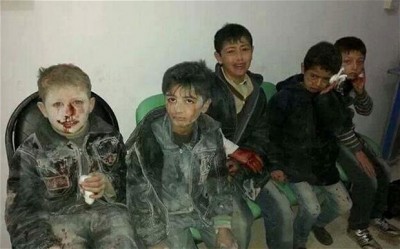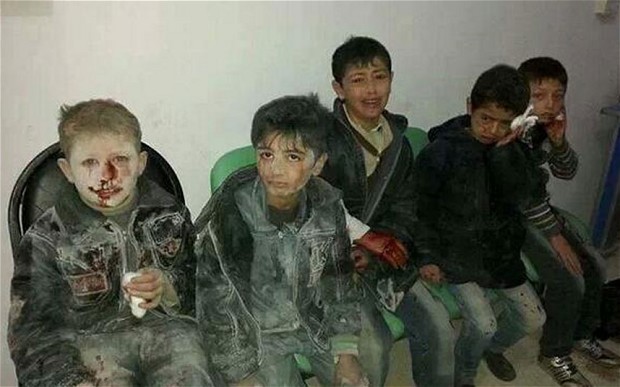
WHEN the jihadists calling themselves Islamic State (IS) executed the first of four Western hostages in Syria in August, they lit a fuse of outrage that led America to expand its existing air war against the group in Iraq to include strikes against it in Syria. There was less fuss when on October 27th a jury in London found that the regime of Bashar Assad, Syria’s president, had last year “deliberately and intentionally killed” Abbas Khan, a British doctor. Mr Khan had been jailed in Syria after travelling to Aleppo to treat injured people. His mother, allowed a visit during his detention in Damascus, described signs of torture familiar to Syrians: a skeletal physique, a missing fingernail and burned feet.
As the world’s attention stays focused on IS, Mr Assad has increased his attacks. Between October 20th and 31st his regime carried out 850 aerial attacks—including the dropping of indiscriminate barrel bombs—on rebel-held areas, according to the Syrian Observatory for Human Rights (SOHR), a Britain-based monitoring group. On October 29th the regime bombed a camp for displaced people in Idleb province. Last month it killed six local citizen journalists (compared to one killed by Islamic State), including one who died under torture after two years of detention.
Although less attention is now being paid to the regime’s atrocities than those of its foes, human rights groups say Mr Assad’s forces are responsible for more deaths than IS. Torture in jail continues and grows ever more grisly: Amnesty International, a lobby, has documented 31 methods of torture, many of which had not been seen for years. Rebel groups also allege that small chlorine-gas attacks have continued (though this has not been independently confirmed) despite Mr Assad’s surrender of his chemical weapons stockpile following a sarin attack that left hundreds dead in Damascus in August 2013. Peaceful dissidents, such as Mazen Darwish, who headed the Syrian Centre for Freedom of Expression, remain in jail for nothing more than criticising the regime.
The second prong of the strategy announced by Barack Obama on September 10th—training and arming moderate Syrian rebels—has yet to start. There may soon be none left to back. Moderate forces have been in decline since 2012, when hardlinerebels including Jabhat al-Nusra, al-Qaeda’s affiliate in Syria, came to the fore. The few mainstream groups left are struggling to survive. Mr Assad is closing down supply routes into Aleppo used by moderate rebels, while IS, which has regularly fought such groups, remains a threat. So too is Jabhat al-Nusra, which in early November took over several rebel bases in Idleb province, their last northern stronghold. Those targeted included Jamal Maarouf, an American-backed rebel leader, and Harakat Hazm, the first group to get anti-tank missiles from America.
The Pentagon says it doesn’t see “current events as a major setback” to Mr Obama’s strategy. But al-Qaeda’s local affiliate is edging closer to Bab al-Hawa, a border crossing with Turkey used by moderate groups. On November 6th reports said America had launched air strikes against the group.
Syrians say the message being sent is that siding with America brings no tangible benefits. If the current course continues, IS will control eastern Syria, Jabhat al-Nusra the north-west and Mr Assad the west. That is hardly the result America or its allies had in mind.
The Economist


Leave a Reply
You must be logged in to post a comment.